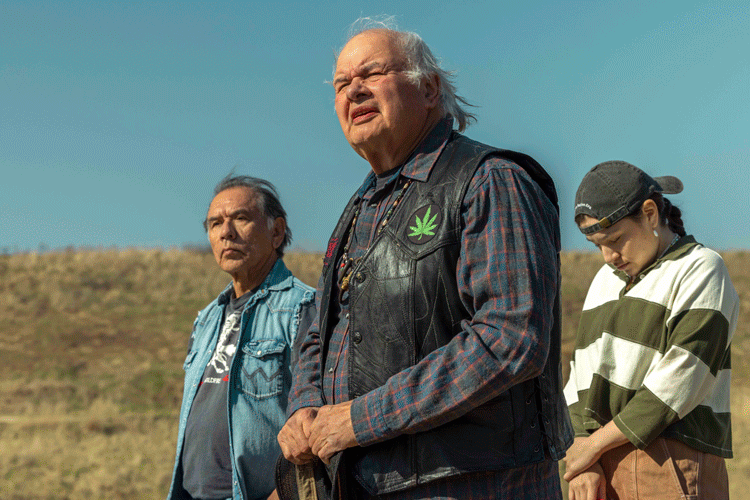TV HOPES YOU’LL TAKE ITS ADVICE
- Share via
If you think you’re in sync with the newest trend in daytime shows, you may want to have your head examined.
Or at least your relationship.
Advice and counseling shows are proliferating this year among distributors of syndicated TV programs, who displayed their wares over the weekend at the Century Plaza Hotel for the Assn. of Independent Television Stations.
If programs like “Good Advice,” “Strictly Confidential,” “Between Us” and “Getting in Touch With Dr. David Viscott” sell to enough stations, you can look forward to on-camera psychotherapy, Dear Abby-style advice and the dramatization of group therapy sessions.
“Television is the only medium that hasn’t been used to give advice,” said Robert King, president of syndication for Coca-Cola Telecommunications, which encompasses part of what used to be Columbia Pictures Television.
Until now.
Coca-Cola’s potential entry into the field is “Good Advice,” which features New York radio shrink Dr. Joy Browne counseling members of the studio audience and callers on relationships and personal problems.
In this age of--well, telecommunications, as Coke has named one of its many new entertainment subsidiaries--call-ins may actually be view-ins . King said plans call for a roving camera crew to seek out advice-seekers during the show’s taping.
“It’s all the advice columns on TV and radio pulled into a TV show,” said executive producer Andy Friendly.
Blair Entertainment takes a different approach with “Strictly Confidential,” which features Dr. Susan Forward, author of “Men Who Hate Women and the Women Who Love Them,” sharing the camera with a handful of actors who dramatize sessions from group therapy case files.
What this show lacks in spontaneity it intends to make up for with its probing of “the bitter conflicts unraveling the fiber of modern marriage.” That includes “the controversial, sometimes shocking issues rarely discussed” as well as “the secrets real people hide.”
That juicy sales promo, pitched via videotape and a slick, printed flyer, is typical of what independent stations representatives saw and heard on the fifth, sixth and seventh floors of the Century Plaza last week.
INTV, as the indie TV organization is known, turned the hotel into a bustling marketplace for next year’s non-network shows, of which the advice entries represented a mere fraction.
Using a stiff drink and a cold nosh as the lure and the promise of boosted ad revenues as the bait, sellers in the crowded hallways beckoned station representatives into their suites.
Old movies, kids’ shows and the so-called “off-network” shows--series that had successful runs on one of the networks--are still the mainstays of the syndication market, joined this year by several all-new sitcoms and a spate of game shows.
To hype a show called “Glamorous Ladies of Wrestling,” three well-toned young women in skimpy outfits and wearing “GLOW” buttons roamed the hallways.
Salespeople wearing Groucho noses were pitching “Groucho and Me,” a “first-run” sitcom, as the shows made directly for non-network airing are called. From Gaylord Productions, it features a Groucho slouch-alike as the ghost of the famous Marx brother, come to Earth to bedevil a young ad copywriter.
More promising in the first-run category are fall hopefuls such as “Suddenly Sheriff,” from Lorimar-Telepictures and starring George Wyner (assistant district attorney Irwin Bernstein on “Hill Street Blues”) and “Three’s Company” alumna Priscilla Barnes or Group W Production’s “Together Again,” which has another “Three’s Company” graduate, Richard Kline, as a man who marries an old flame.
Buttons with the words “ooh, ooh, ooh,” seen on suit lapels around the halls, made sense after a stop by Republic Pictures, which has dragged “Car ’54 Where Are You” out of the vaults. Sixty episodes are available starring Fred Gwynne and Joe E. Ross, and yes, that is Charlotte Rae, late of “Facts of Life,” as Mrs. Leo Schnauser.
Game shows are getting another spin at indie sales. Lorimar-Telepictures is bringing back “Truth or Consequences” with new host Larry Anderson, and Viacom is reviving “Split Second” with Monty Hall. Gaylord is gambling on “Late Night Lotto,” a live, late-night call-in show.
And Buena Vista Television, the syndication arm of Walt Disney Co., is signing up buyers for “Win, Lose or Draw,” a sketch-pad charades game that co-producer and frequent guest-to-be Burt Reynolds reportedly plays in his home with show-biz buddies.
(On the pilot episode, Reynolds trying to get teammates Tony Danza and a non-celebrity contestant named Jerry to guess the name Betsy Ross drew a woman holding a flag. Danza and Jerry could only come up with the name Susan B. Anthony, and lost the round to opponents Loni Anderson, Betty White and their civilian teammate.)
“It’s funny,” said Buena Vista pitchman Mike Mellon. “Plus, there’s an element of sexual tension.”
In the hour category, there’s tension of a different kind. The demand for hourlong shows remains down.
“I don’t think station executives are beating down the doors for hours,” said Scott Towle of Orion TV Syndication. For the second year in a row, the company is attempting to sell “Cagney & Lacey,” a proven network hit. Sales are sluggish, but Towle insists, “I’m not ready to push the panic button on this product. I’m waiting for a change in the marketplace.”
MTM Syndication has priced “St. Elsewhere” to move, selling it to stations for only one year at a time instead of the customary five. The series theoretically is ready to work the afternoon shift each day, now that enough NBC episodes have been produced (115 by this season’s end) to allow indies to air it Monday through Friday for half a year without repeating.
Elsewhere in the one-hour ranks, Paramount Television Group was modestly apprising stations of “the most anticipated event in the history of television syndication.” The five words needed to close sales: “Star Trek--The Next Generation.”
Actually, not much closing was necessary on that show; Paramount is remaining loyal to indies that have aired the old “Star Treks” over the years and will give them first dibs on the new episodes, which will bypass the networks entirely. (There are no plot details yet on “The Next Generation.”)
In fact, INTV is not intended as much of a sales-closing market. “It’s kicking tires,” said Lorimar-Telepictures’ sales executive Karl Kuechenmeister. Station reps window shop at INTV but don’t bring out their checkbooks until next week’s National Assn. of Television Program Executives extravaganza in New Orleans.
But INTV does give some indication of which tires are already deflated.
Two advice shows, for example, have already dropped out of the running, “The Group,” from PBS and “People in Crisis” from Viacom. The latter show was scrubbed after CBS-owned stations rejected the pilot, which featured Dr. Dan Kiley, author of “The Peter Pan Syndrome.”
Viacom might be upset--except that it is sitting on the hottest and most profitable syndicated show ever, the reruns of “The Cosby Show.” Revenues are “higher now in six markets than anyone has achieved overall in the first cycle,” said Viacom’s Joe Zaleski, who masterminded the “Cosby” market-by-market approach. Would-be buyers entering the Viacom suite were kindly informed that they’d have to wait their turn, Zaleski said.
Dr. David Viscott, for one, is not unhappy to see competition in the Angst TV market diminish. The star of “Getting in Touch With Dr. David Viscott,” which the Dick Clark Co. is producing with Malrite Communications, meets his clients for the first time while on camera, and in four or five minutes attempts to clear up problems with their marriages, their families and their personalities. Viscott is heard on KABC Radio in Los Angeles,
Viscott’s secret to speedy treatment: “I speak what I think without weighing whether it’s appropriate.” His private-practice patients rarely need to see him for more than two sessions, he claims, which is why he believes that his TV work will constitute “a therapeutic process that is valid.”
But what kind of people want to expose their problems before a nation of afternoon TV viewers?
“I once thought that they would have to be disturbed,” Viscott said. “But now, I think it’s everybody.”
More to Read
The complete guide to home viewing
Get Screen Gab for everything about the TV shows and streaming movies everyone’s talking about.
You may occasionally receive promotional content from the Los Angeles Times.






